Chief of the Cabinet of Ministers
The Chief of the Cabinet of Ministers, officially known as the Chief of the Cabinet of Ministers of the Argentine Nation (Spanish: Jefe del Gabinete de Ministros de la Nación Argentina) is a political office of Argentina, akin to a prime minister, created by the 1994 amendment of the Argentine Constitution. The current office holder is Santiago Cafiero, who serves in President Alberto Fernandez's cabinet.
| Chief of the Cabinet of Ministers of Argentina
Jefe de Gabinete de Ministros de la Nación Argentina | |
|---|---|
 | |
| Style | Mr. Chief of the Cabinet |
| Appointer | Alberto Fernández as President of the Argentine Nation |
| Inaugural holder | Eduardo Bauzá |
| Formation | 1995 |
| Website | argentina.gob.ar/jefatura |
Attributions
 |
|---|
| This article is part of a series on the politics and government of Argentina |
|
|
Legislative
|
|
|
|
|
|
The attributions of the Chief of the Cabinet of Ministers are established by the articles 100 and 101 of the Constitution of Argentina. Most of his duties are related to organize the work of the other Ministers, or to its intermediary role between the Executive Power and the Argentine National Congress.
To detail in full the powers and duties of the Chief of the Cabinet of Ministers of Argentina under Articles 100 and 101 of the Constitution to quote:
Second Part: Authorities of the Nation
Chapter IV
The Chief of the Ministerial Cabinet and other Ministers of the Executive Power
Section 100.- The Chief of the Ministerial Cabinet and the other secretary ministers, whose number and powers shall be determined by a special law, shall be in charge of the business of the Nation and shall countersign and legalize the acts of the President with their signatures, without which said acts are void.
The Chief of the Ministerial Cabinet, politically liable before the National Congress, is empowered:
1.- To exercise the general administration of the country.2.- To perform the acts and issue the rules necessary to exercise the powers granted by this section as well as those delegated by the President of the Nation, being countersigned by the pertinent secretary minister to which the act or rule refers.
3.- To appoint the employees of the Administration, except for those pertaining to the President.
4.- To exercise the functions and powers delegated to him by the President of the Nation and, with the consent of the Cabinet, to decide about matters that the Executive Power may indicate to him or, on his own account, about those he deems it necessary due to their importance, within the scope of his jurisdiction.
5.- To coordinate, prepare and convoke the meetings of the ministerial cabinet, presiding at them in the absence of the President.
6.- To submit to Congress the bills on Ministries and National Budget, with the prior consent of the Cabinet and the approval of the Executive Power.
7.- To have the revenues of the Nation collected and to enforce the National Budget Act.
8.- To countersign regulatory decrees of the laws, decrees to extend the ordinary legislative session of Congress or to convoke to an extraordinary one, and the messages of the President supporting legislative initiatives.
9.- To attend the meetings of Congress and take part in its debates, but not to vote.
10.- Once the ordinary legislative session of Congress has begun, to submit together with the other ministers a detailed report on the state of the Nation regarding the business of the respective departments.
11.- To give such oral and written reports and explanations that either of the Houses may request from the Executive Power.
12.- To countersign decrees about powers delegated by Congress, which shall be under the control of the Joint Standing Committee.
13.- To countersign, together with the other ministers, decrees of necessity and urgency and decrees on partial promulgation of laws. Within ten days of their approval, he shall personally submit these decrees to the consideration of the Joint Standing Committee.
The Chief of the Ministerial Cabinet shall not be simultaneously appointed to another ministry.
Section 101.- The Chief of the Ministerial Cabinet shall attend Congress at least once a month, alternating between each House, to report on the progress of the government, notwithstanding the provisions of Section 71. He may be interpellated for the purpose of considering a vote of censure, by the vote of the absolute majority of all the members of either House, and he may be removed by the vote of the absolute majority of the members of each House.
List of Chiefs of the Cabinet of Ministers
References
- "Congreso de la Nación Argentina". Congress of the Argentine Nation. Retrieved 19 September 2018.

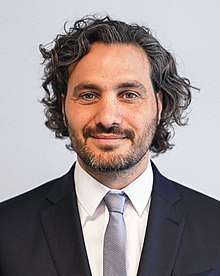
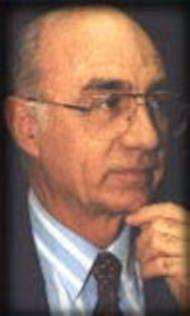



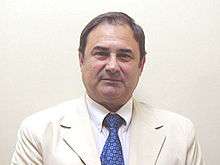


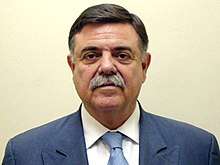

.jpg)
.jpg)
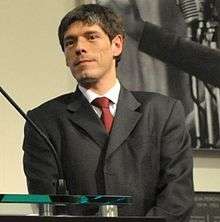
.jpg)
